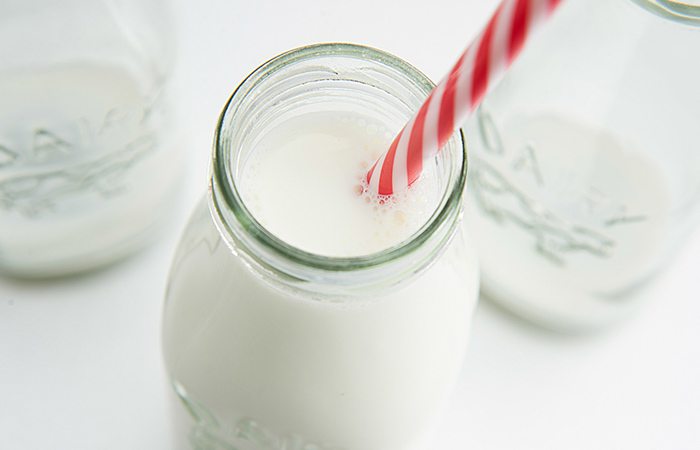Milk is one of the nourishing foods since evolution and helps in growth. It also contains nine essential nutrients like potassium, calcium, protein, phosphorus, vitamin A, vitamin D, vitamin B12, riboflavin, niacin that are essential for growth and development of an individual.
India is one of the top countries producing milk and production continues to grow every year. The milk production in the country has increased 35-40% in the last 5 years taking it to 198 million tonnes. Uttar Pradesh produced the highest quantity of milk, about 30 million metric tonnes. The recommended daily allowance (RDA) of milk is 2 glasses for children and 3 glasses for adults.
Benefits
Milk acts as an accelerator in promoting growth and development. Those who are unable to take proper balanced diets, consuming milk products can boost overall nutrition in them. It has got plenty of advantages.
Milk fermentation gives cheese, yoghurt and other products, minimizes lactose content and progresses the digestion process especially in people with milk allergies.
Milk fortification with vitamin A and D can help in maintaining adequate health.
Pasteurization increases the safety and quality of milk by destroying microbes and enzymes that reduces the quality and shelf life of milk.
Fractionation of milk gives whey protein and butter.
Consuming milk products have both benefits and adverse health effects as per the studies. Humans are the only species that drink milk even in adulthood and are the only ones to drink milk of other animals as well.
Disadvantages
Cows are made to produce a higher level of insulin like growth factor to increase milk secretion. Due to this there is an increase in level of progestin and estrogen and other growth hormones in milk, thus boys and girls get matured or attain puberty early.
This hormone insulin-like growth factor promotes growth of cancer cells. Milk products are somewhere the cause for prostate cancer but decreases the risk of colorectal cancer.
Studies show that countries with highest milk consumption do have a higher number of fracture rates. Hence it shows that consuming milk does not serve the presence of abundant calcium in the body.
Studies suggest that long term use of reduced fat milk can also result in weight gain than full fat milk. Whereas regular consumption of yoghurt doesn’t promote weight gain because of the breakdown of lactose and probiotics presence. Consumption of milk is not directly linked to weight gain or any heart disease however saturated fat is said to increase LDL.
It is believed that cow milk is good for infants and kids but presence of proteins in cow milk can cause digestive problems in some infants. There are cases of allergy, asthma and eczema provoked by dairy consumption.
According to study, emission of greenhouse gas from cow’s milk is about to be three times higher than plant based alternatives.
Cow milk is not the substitute of breast milk, however it can add nutritional value in kids. Other protein and vitamin supplements can promote growth and development. Calcium and vitamin D can be taken from other food sources, in case one has attained intolerance to dairy products. Spinach, soybean, ragi, fenugreek leaves, and amaranth leaves are good sources of calcium.
Plant based milk ingredients like cashew milk, rice milk, soy milk, peanut milk are an excellent substitute to dairy. These are very rich in calories with awesome health endorsing properties.

 Drinking milk has mixed effects. Consuming in moderation amount is not going to be fatal. But if anyone develops intolerance to milk, they can easily switch to non-dairy alternatives.
Drinking milk has mixed effects. Consuming in moderation amount is not going to be fatal. But if anyone develops intolerance to milk, they can easily switch to non-dairy alternatives.










.jpeg)









.jpeg)





.jpg)


.jpg)



